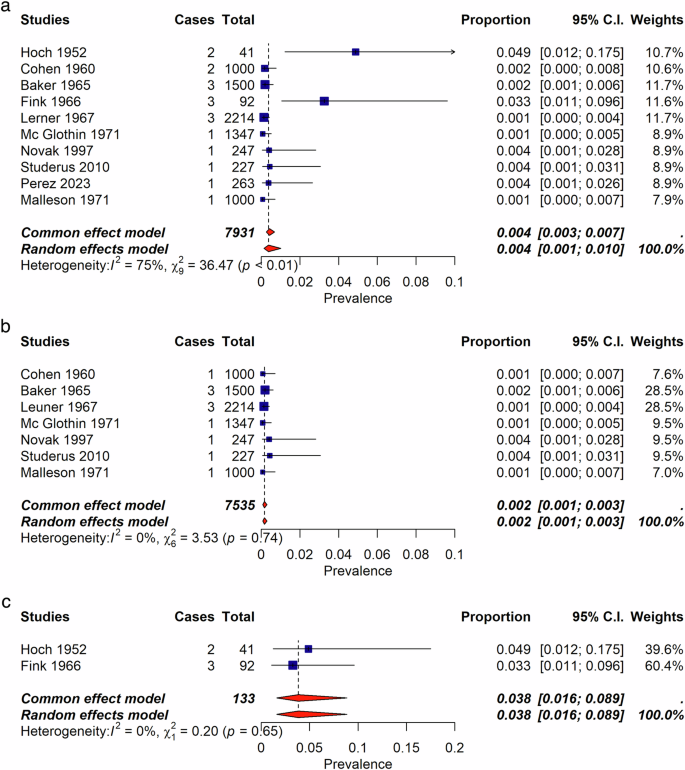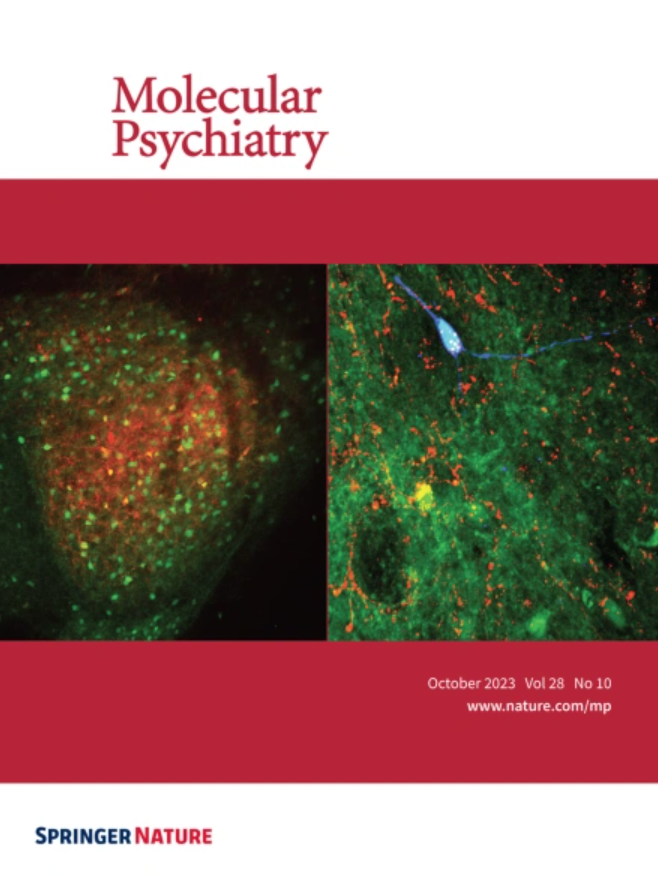Reconsidering evidence for psychedelic-induced psychosis: an overview of reviews, a systematic review, and meta-analysis of human studies
IF 9.6
1区 医学
Q1 BIOCHEMISTRY & MOLECULAR BIOLOGY
引用次数: 0
Abstract
Persons with schizophrenia are excluded from psychedelic-assisted therapy due to concerns about the risk of triggering or worsening psychosis. However, there is limited meta-analytic data on the risk of psychedelic-induced psychosis in individuals with pre-existing psychotic disorders. We conducted a systematic review, meta-analysis, and overview of reviews to assess the incidence of psychedelic-induced psychosis and symptom exacerbation in schizophrenia. Our pre-registered protocol (CRD42023399591) covered: LSD, psilocybin, mescaline, DMT, and MDMA, using data from Embase, PubMed, PsyARTICLES, PsyINFO, and trial registries up to November 2023. A random-effects model was used to calculate psychosis incidence, with standardized assessments of study quality. From 131 publications, we analyzed 14 systematic reviews, 20 reviews, 35 randomized-controlled trials (RCTs), 10 case-control studies, 30 uncontrolled trials (UCTs), and 22 cohort studies, most of which were low quality. Meta-analysis of nine studies showed an incidence of psychedelic-induced psychosis at 0.002% in population studies, 0.2% in UCTs, and 0.6% in RCTs. In UCTs including individuals with schizophrenia, 3.8% developed long-lasting psychotic symptoms. Of those with psychedelic-induced psychosis, 13.1% later developed schizophrenia. Sensitivity analyses confirmed the results. In summary, the reviewed evidence suggests that schizophrenia might not be a definite exclusion criterion for clinical trials exploring safety and efficacy of psychedelics for treatment-resistant depression and negative symptoms. However, given the low quality and limited number of studies, more high-quality research is needed, and a conservative approach is recommended until further data is available.


重新考虑迷幻药诱发精神病的证据:综述、系统综述和人类研究荟萃分析
背景由于担心精神分裂症患者有诱发或加重精神病的风险,他们被排除在迷幻药辅助治疗之外。方法我们进行了一项系统综述、荟萃分析和综述综述,以评估精神分裂症患者中迷幻药诱发精神病和症状加重的发生率。我们预先注册的研究方案(CRD42023399591)包括使用 Embase、PubMed、PsyARTICLES、PsyINFO 和试验登记处截至 2023 年 11 月的数据,研究了迷幻剂、迷幻药、麦司卡林、DMT 和 MDMA。结果从 131 篇文献中,我们分析了 14 篇系统综述、20 篇综述、35 项随机对照试验 (RCT)、10 项病例对照研究、30 项非对照试验 (UCT) 和 22 项队列研究,其中大部分研究的质量较低。对 9 项研究进行的元分析表明,在人群研究中,迷幻药诱发精神病的发生率为 0.002%,在 UCT 中为 0.2%,在 RCT 中为 0.6%。在包括精神分裂症患者在内的 UCTs 中,3.8% 的人出现了长期的精神病症状。在迷幻药诱发的精神病患者中,13.1%后来患上了精神分裂症。结论综上所述,所审查的证据表明,精神分裂症可能并不是探讨迷幻剂对治疗耐药抑郁症和阴性症状的安全性和有效性的临床试验的明确排除标准。然而,鉴于研究质量不高且数量有限,需要进行更多高质量的研究,在获得更多数据之前,建议采取保守的方法。
本文章由计算机程序翻译,如有差异,请以英文原文为准。
求助全文
约1分钟内获得全文
求助全文
来源期刊

Molecular Psychiatry
医学-精神病学
CiteScore
20.50
自引率
4.50%
发文量
459
审稿时长
4-8 weeks
期刊介绍:
Molecular Psychiatry focuses on publishing research that aims to uncover the biological mechanisms behind psychiatric disorders and their treatment. The journal emphasizes studies that bridge pre-clinical and clinical research, covering cellular, molecular, integrative, clinical, imaging, and psychopharmacology levels.
 求助内容:
求助内容: 应助结果提醒方式:
应助结果提醒方式:


